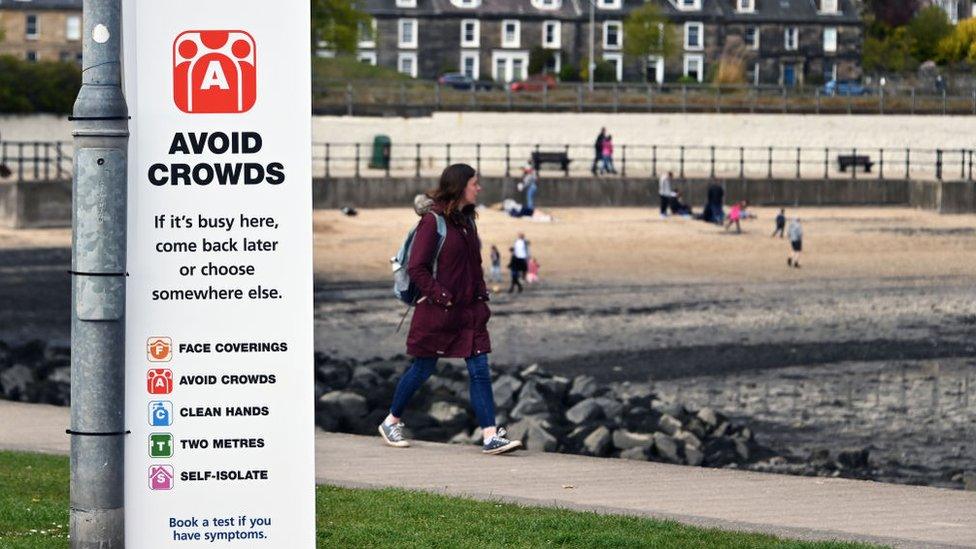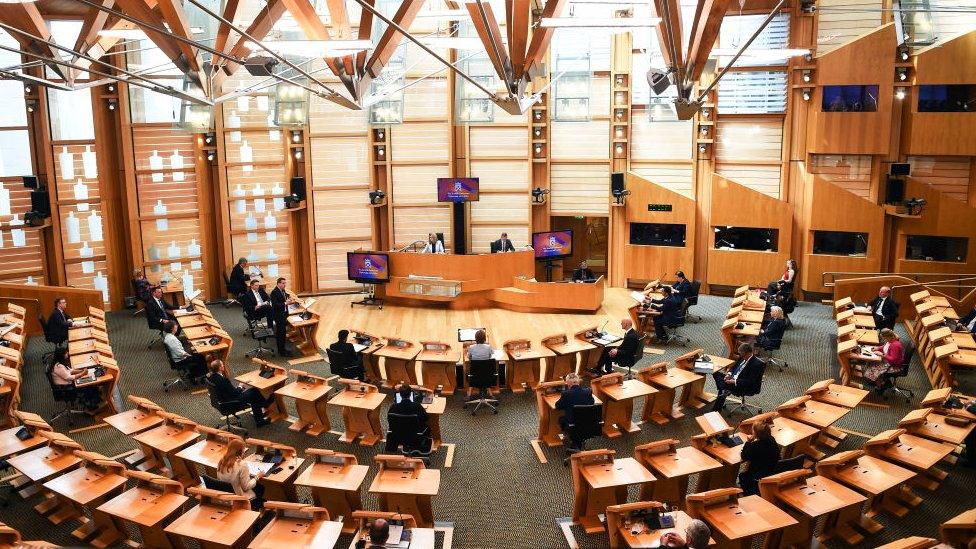MSPs agree to extend emergency Covid-19 powers into 2022
- Published

MSPs have agreed to extend emergency measures prompted by the Covid-19 pandemic until March 2022.
The move covers temporary rules around court hearings, evictions, care homes and bankruptcy and debt arrangements.
Some opposition parties argued against extending the powers beyond September, with the government aiming to drop most legal restrictions from early August.
But Deputy First Minister John Swinney said some "essential" measures would have to continue beyond that date.
Legislation making the change of dates was pushed through Holyrood in three days under emergency procedures, with the parliament now going into recess until September.
MSPs have already been told that they will be recalled in July and August when decisions are made about easing restrictions further.
The number of Covid-19 cases in Scotland has increased sharply in recent days, with 2,999 positive tests recorded on Wednesday - a higher daily figure than at any point during the "second wave" in January.
However with the vaccine programme continuing to roll out the government aims to move the whole country to the lowest level of restrictions from 19 July, before lifting most legal curbs from 9 August.

Many of the most stringent coronavirus restrictions, such as the travel ban and stay at home orders, were underpinned by UK legislation.
However MSPs also passed emergency bills in April and May 2020 making provisions about issues within Holyrood's remit, including a block on evictions and changes to the courts system to allow trails to take place over video links.
These measures - which the government said would "only last as long as is required" - were due to expire on 30 September, but this has now been extended for six months, to 31 March 2022.
MSPs could then make a further extension of six months, to September 2022, without passing a new law.
Mr Swinney told MSPs that further legislation would be drawn up after recess to "look at longer-term issues" and deal with the legacy of the pandemic - saying that some temporary provisions may be made permanent.

The new legislation rolls back some seldom-used provisions, such as an extension to the time limit for people to complete Community Payback Orders and for delays in responding to Freedom of Information requests.
However many others are to be extended, including rules allowing court and tribunal hearings to be held remotely, emergency directions for care homes, and an extended notice period for tenants facing eviction.
Some of these are measures which are still in regular use, while others - like the provision allowing the government to release prisoners in the event of major Covid outbreaks among prison staff - are being kept on in case they may be needed later.
The Scottish Conservatives argued that "excellent progress" had been made in tackling the pandemic via the vaccine programme, and that Covid was "no longer the serious threat to health that it was this time last year".
MSP Murdo Fraser said it was "right to ask how long the extraordinary, unprecedented powers that have been given to ministers should continue", pointing out that Holyrood is sitting in September and could consider the bill then after further scrutiny and consultation.
However Mr Swinney said waiting months to decide on the bill would "leave a note of uncertainty in the minds of a whole range of organisations" about the future, saying it was sensible to settle "deeply practical and operational issues concerning the running of public services".
The Lib Dems joined the Conservatives in opposing the bill, saying powers would be in place "far longer" than were needed and would give the government "unprecedented rights" to push through legislation without scrutiny.
However with Labour and the Greens joining the SNP in supporting the legislation, it passed by a vote of 90 to 32.